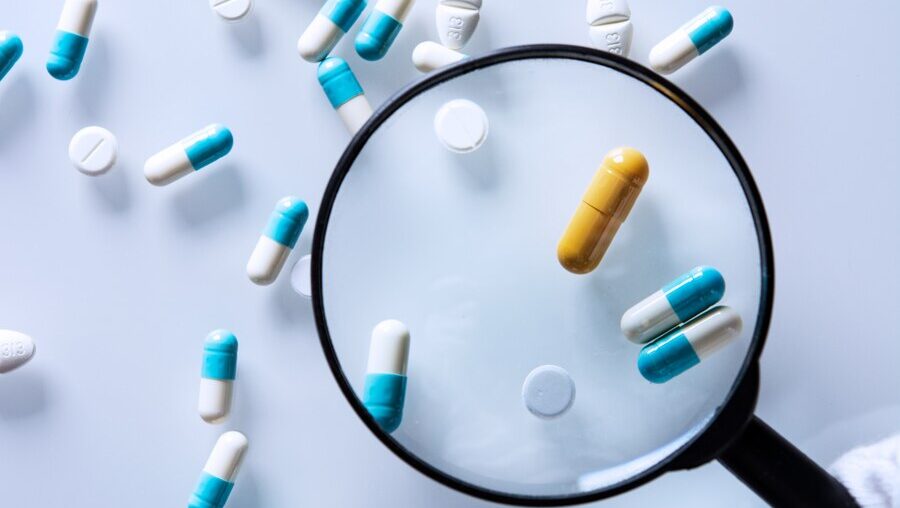The process of drug discovery has historically been a lengthy, expensive, and complex venture. However, with the rise of artificial intelligence (AI) technologies, significant advancements are being made that are revolutionizing how drugs are developed. AI is streamlining every aspect of the drug development process, reducing time to market, improving accuracy, and lowering costs. In this article, we explore how AI can accelerate drug discovery and its transformative role in the future of the pharmaceutical industry.
The Traditional Drug Development Process
The drug development process typically involves several stages: discovery, preclinical testing, clinical trials, regulatory approval, and commercialization. Each phase is crucial and time-consuming, often taking years to complete and billions of dollars to execute. During this process, drug manufacturers face challenges such as identifying the right molecular targets, ensuring efficacy, overcoming regulatory hurdles, and optimizing formulations for mass production.
Given these complexities, pharmaceutical companies are turning to AI to improve efficiency and reduce risks in drug discovery. AI’s ability to analyze vast amounts of data quickly and accurately has the potential to transform how drugs are developed, tested, and brought to market.
The Role of AI in Drug Discovery
AI technologies like machine learning (ML) and deep learning (DL) are making a significant impact on the drug development field. These advanced technologies enable faster and more accurate identification of potential drug candidates, as well as better predictions regarding their effectiveness and safety.
Here are several ways in which AI is accelerating drug discovery:
- Identifying Drug Targets and Biomarkers
AI-powered algorithms can sift through massive datasets, including scientific literature, clinical data, and experimental results, to uncover hidden patterns and relationships. This process helps scientists identify promising drug targets—proteins or genes involved in diseases—that might otherwise go unnoticed. By analyzing drug database information, AI can pinpoint molecules that may have therapeutic potential for treating specific diseases.
Moreover, AI is also capable of identifying biomarkers, which are biological indicators that help researchers assess the presence or progression of a disease. This enables a more precise approach to drug discovery, focusing efforts on the most promising therapeutic targets.
1. Predicting Drug Efficacy and Toxicity
One of the most critical and time-consuming aspects of the drug development process is predicting the safety and efficacy of drug candidates. Traditionally, drug candidates undergo lengthy and costly animal testing to evaluate their effects, but AI can simulate the interactions of molecules in a virtual environment, predicting potential outcomes before physical trials begin.
AI models can predict how drugs will behave in the body, their potential side effects, and how effective they will be in treating diseases. This significantly reduces the number of failed candidates and helps companies focus on the most promising drugs. By simulating different scenarios, AI can optimize the drug discovery process, ensuring that only the most viable candidates make it to clinical trials.
2. Optimizing Drug Formulations and Delivery
AI also plays a role in enhancing drug manufacturing companies ability to optimize drug formulations and delivery methods. By analyzing large datasets of chemical compounds and formulations, AI can suggest new ways to combine active ingredients, ensuring that drugs are more effective and easier to administer.
AI-driven predictive models can also help drug manufacturers determine the best delivery methods, such as oral tablets, injections, or transdermal patches. This optimization can increase the likelihood of a drug’s success in clinical trials and its eventual market performance.
3. Personalized Medicine and AI
Another major breakthrough driven by AI in drug discovery is personalized medicine. AI enables the analysis of patient-specific data, including genetic, environmental, and lifestyle factors. By leveraging this data, AI can help pharmaceutical companies develop tailored drugs that are more effective for specific patient populations.
Personalized medicine has the potential to reduce adverse reactions to drugs and increase their therapeutic benefit. This is especially important in fields like oncology, where the genetic makeup of a tumor plays a critical role in determining how a patient will respond to treatment.
AI and Drug Pricing: Cost Efficiency through Innovation
While the primary goal of AI in drug discovery is to enhance the efficacy and safety of new treatments, it also offers a significant opportunity to improve the economics of drug development. AI’s ability to streamline the drug development process can reduce the overall cost of developing new medications. This cost efficiency can help mitigate the rising prices of new drugs, which is a growing concern for patients and healthcare providers worldwide.
By improving the drug development timeline and reducing trial-and-error methods, AI can shorten the duration of research and development. This reduces costs associated with preclinical and clinical testing, and ultimately leads to lower drug pricing for consumers. Furthermore, AI tools can optimize supply chain management in drug manufacturing, cutting down on production costs and helping to ensure that medications are affordable and accessible.
AI in Drug Database Management
A crucial aspect of AI’s role in drug discovery is its ability to manage and analyze large drug databases. AI algorithms can scan these databases for valuable insights into chemical structures, clinical outcomes, and patient responses, helping researchers identify trends and opportunities for new drug candidates.
AI can also automate data extraction, data cleaning, and data analysis from a variety of sources, including clinical trials, scientific publications, and proprietary databases. This leads to faster, more accurate decision-making and reduces the risk of human error in the drug discovery process. By integrating AI with drug databases, pharmaceutical companies can gain deeper insights and make more informed decisions about which drug candidates to pursue.
The Future of AI in Drug Discovery
As AI continues to evolve, its potential to reshape the pharmaceutical industry will only grow. In the future, AI could be used to develop entirely new classes of drugs, using advanced machine learning techniques to design molecules from scratch rather than relying on traditional methods. The ability to simulate drug interactions at a molecular level could revolutionize the way treatments are designed, making drug discovery faster, more precise, and more cost-effective.
AI also promises to accelerate the development of vaccines, monoclonal antibodies, and gene therapies, areas of intense focus for pharmaceutical companies today. By utilizing AI for these complex treatments, drug developers can overcome many of the hurdles that have traditionally slowed progress in these areas.
Conclusion
AI is undeniably transforming the drug development process by improving the efficiency, accuracy, and cost-effectiveness of drug discovery. Through enhanced data analysis, predictive modeling, and personalized treatment approaches, AI is helping pharmaceutical companies discover drugs faster and with greater precision. By streamlining every stage of the drug development process—from identifying targets to optimizing formulations—AI is accelerating the future of medicine, providing hope for patients and making drugs more accessible at a lower cost.
As AI technologies continue to advance, pharmaceutical companies will need to embrace this powerful tool to stay competitive in an increasingly complex and fast-paced industry. The synergy between AI and traditional pharmaceutical expertise will define the next generation of drug discovery and development, making it one of the most exciting frontiers in healthcare.


